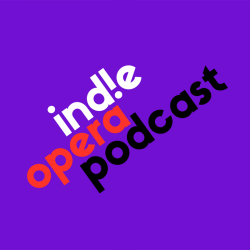The 2018 New York Opera Fest begins this week, and we have an interview with John Taylor Ward, who is singing Don Giovanni, in Heartbeat Opera‘s innovative production

John Taylor Ward, Bass-Baritone
Don Giovanni
Mozart
Heartbeat Opera
Baruch Performing Arts Center
This is Taylor’s role debut.
New Generation of singers
They have a wide range of interests and stylistic fluencies that can bring a multi-level approach to new and old works and organizations. Heartbeat is examining Don Giovanni through the lens of female desire. Usually the opera looks at what Giovanni finds in each of the female characters that makes him seduce them. They have flipped this to
look at why each woman would be interested in Giovanni. If he is a completely irredeemable “tool” there is no reason for the women to obsess over him, fight for his attention and then eventually his downfall.
Louisa Proske, director
Characterization of Giovanni
He is a shapeshifter, somebody who is moving through the varied worlds of social class and various situations. His genius is not just about being super hot and manly all the time, but also his talent and skill for figuring out what everybody wants to hear and seducing them with that.
Earliest performance memory:
5 years old
Winthrop in Music Man
Eastman School of Music
Yale School of Music
Paul O’Dette, professor and mentor at Eastman School
World famous lutinist
Director of Boston Early Music Festival
Early music requires a more informed approach, by examining every aspect of what the composer put on the page, and left off it. The goal is to try and interpret their notation and what they meant by it. As a performer if you’re examining all those aspects out of a piece, what is it about this piece or its performance made it meaningful and moving to audiences at that time. How can we use that info, not just for it’s own sake, but to make it relevant to audiences today.
Associate artist of Heartbeat Opera
Founding core member of Cantata Profana
Co-Founding Director of Lakes Area Music Festival – Brainerd, MN
Celebrating 10th anniversary season
Grew from a couple of chamber music concerts in it’s first season, now they host 175 musicians from around the world presenting full ballet and opera productions, symphonic orchestra concerts, as well as outreach and education.
What opened up the range of music he is now performing?
Lakes area has given him the chance to try out some standard repertoire while he has continued to work in baroque and 20th/21st Century works.
What is shape note music?
It began in Colonial America, especially around the Boston area in the 1770‘s. Originally it was developed as a didactic tool to help the colonists who couldn’t read music, a style of notation to help people learn solfege. Shape note music took off and helped birth a lot of American composers, including many female composers.
The most important aspect of the repertoire is that it is not presented for an audience. Everyone faces in towards the others to make music and there is no goal towards creating a cohesive product. It was meant to create and enjoyment of making music in the company of other people.
One of the god fathers of the modern universe of shape note singing said: “He would walk a thousand miles to go to a shape note singing and he would not cross the street to listen to one.” Was shape note composing more open to women because it was community based, where as schools and other programs were not as open to them? Yes, however, being a composer or professional musician was not a thing in early America like it was in Europe. This style of music was all done by amateurs.
Joe’s Pub recital
Taylor used a lot of shape note repertoire which he had to to reimagine some to fit into a concert setting.
What’s next for Taylor:
Berio: Sinfonia
Roomful of Teeth
New York Philharmonic
Barber: Dover Beach
An Appalachian Summer Festival – Boone, NC
Mozart: The Magic Flute – Papageno
Copland: Old American Songs
Lakes Area Music Festival – Brainerd, MN
Stravinsky: The Rake’s Progress – Nick Shadow
Gothenburg Symphony, Sweden
Barbara Hannigan, conductor
Equilibrium Young Artists
Credits: Peter Szep producer/editor, Chuck Sachs, contributor

